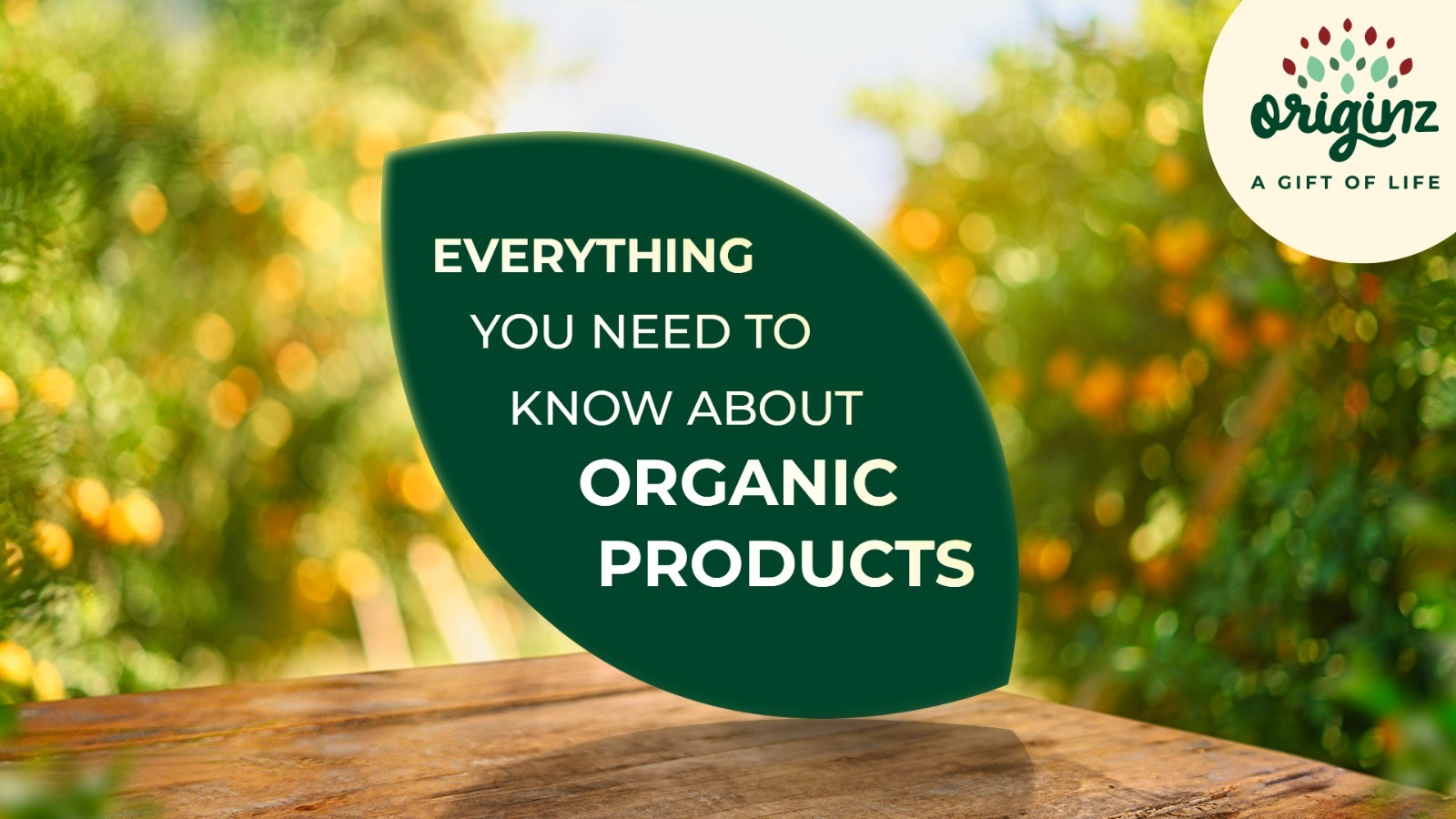
Everything you need to know about organic products
More and more new-age consumers, with access to a world of information, are leaning towards organic food both for their health benefits and because they make for a more earth-friendly choice.
But what exactly is organic? And why should you be seriously considering it?
At its core, organic refers to the way in which farmers grow and nurture their produce and livestock, be it fruits, vegetables, grains, dairy products, or meat. It’s a farming practice that prioritizes the use of natural resources and promotes biodiversity, ecological balance, and soil health.
The use of organic products is especially beneficial as they’re free from synthetic pesticides, fertilizers, growth hormones, or genetically modified organisms (GMOs). Instead, organic farmers rely on natural methods such as crop rotation, composting, and biological pest control to maintain healthy crops and soil.
Here’s a handy selection of organic food information that will help you understand and appreciate this universe better.
Organic diet benefits: at a glance
Organic food products are pure and safe.
Organic food products tend to be safer than conventional products because they contain fewer pesticides and chemicals. Research has shown that exposure to certain pesticides can lead to serious health problems such as cancer, neurotoxicity, and hormone disruption.
Organic food products have a better nutrition profile.
Organic fruits and vegetables have higher levels of vitamins and minerals, such as vitamin C, iron, and magnesium. Similarly, organic milk and dairy products are likely to contain higher levels of Omega-3 fatty acids. Compared to conventional meat, organic meats and poultry contain lower levels of saturated fats.
Organic farming practices are better for the environment.
Organic farmers are more attuned to the environment and more aware of the need to protect and maintain a diverse biological landscape. Research indicates that organic farms are able to support more species (plant, animal, and insect) than conventional farms. Organic farming practices also improve the quality of the soil, resulting in more nutrient-dense crops.
Organic farming practices promote animal welfare.
Organic farmers prioritize the welfare of animals by providing them with access to outdoor areas, clean water, and a natural diet. They avoid the use of antibiotics or growth hormones to promote animal growth, which can lead to antibiotic resistance and other health problems.
Choose organic in every form.
There are many ways to incorporate organic food nutrition into your diet to improve your overall health and wellness.
Eat organic fruits and vegetables.
When shopping for fruits and vegetables, go for the organic variety whenever possible. They tend to be fresher and more nutritious than non-organic options.
Opt for organic dairy products.
Organic milk, cheese, and yogurt are produced without the use of antibiotics or growth hormones, making them a healthier option as compared to conventional dairy products.
Choose organic meat and poultry.
Organic meat and poultry are produced without the use of antibiotics or growth hormones and are less likely to contain harmful bacteria such as E. coli and salmonella.
Incorporate organic grains into your diet.
Organic grains such as quinoa, brown rice, and oats are healthier and more nutritious than conventionally grown grains.
How to identify organic products
When shopping for organic products, here’s a list of organic food information that you need to look for:
1. Always look for the Organic Certification on the product label.
2. Also, watch out for the following classifications, so you can correctly identify food items that are truly organically produced:
100% organic: It means that the product is made entirely
From organic ingredients.Organic: At least 95% of the ingredients in the product are organic.
Made with organic ingredients: At least 70% of the ingredients in the product are organic.
Making the switch to an organic diet
While the price difference can vary depending on the product and the region, organic products are generally more expensive due to their higher cost of production. This becomes a barrier for most people.
Still, if you are keen on incorporating more organic products into your diet, there are several ways you can go about it. The first is to prioritize the organic products that are most important to you.
Second, if you are on a budget, consider buying in bulk. Many natural food stores and co-ops offer discounts for bulk purchases. You can also look for sales and promotions on organic products.
A third way is to consider the frozen option, such as organic frozen green peas, organic frozen whole spinach, etc. Frozen organic foods are picked at the peak of harvest and frozen right away – preserving both their nutritional value and their flavors over long periods of time.
A final word
Clearly, there are many compelling reasons to go organic. You don’t have to make the transition overnight but choose to go about it in a gradual, step-by-step way. The most important thing, like in any journey, is to get started.
Good luck!
Further Read,
Latest Blogs

Maintaining Healthy Habits After Ramadan
Have Ramadan healthy meals after Ramadan and maintain healthy food habits and implement them in your daily lives. Read more about healthy food habits.

Authentic Middle Eastern Iftar Meals to Prepare This Ramadan
Prepare some authentic middle eastern iftar meals this Ramadan. Look for fresh Ramadan food ideas and make your day memorable with these dishes. Check them out.

Eid-al-Fitr Feast: Delicious Recipes to Celebrate the End of Ramadan
Celebrate the end of Ramadan with delicious recipes on the eve of Eid ul Fitr. Read more about the traditional Ramadan recipes and make them easily.

Ramadan Dishes to Cure Fasting Fatigue
Don’t worry about fasting fatigue anymore as we have listed some best Ramadan dishes and easy iftar meals to support your fasting journey. Check them out.